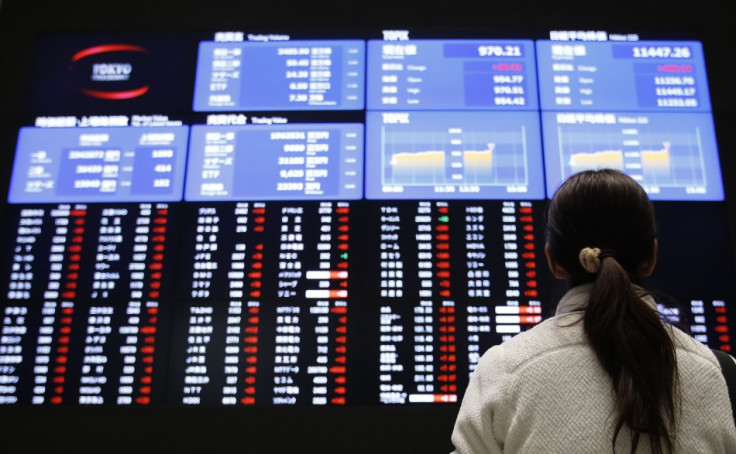Asian Stocks Weak as Cyprus Bailout Sparks Fears

Asian stocks traded lower in the morning, retreating after a robust performance in the previous session, on fears that the Cyprus bailout plan could become a blueprint for other economies.
Japan's Nikkei 225 average index slipped 0.3 percent or 32.80 points to 12513.7 while Australia's S&P/ASX 200 fell 0.7 percent or 37.50 points to 4952.7.
China's Shanghai Composite Index dropped 1.6 percent or 37.08 points to 2289.6. Hong Kong's Hang Seng index was down 0.6 percent or 133.35 points to 22117.8.
South Korea's benchmark KOSPI index gained 0.2 percent or 4.05 points to 1981.7 after weak economic growth figures boosted the case for stimulus measures from the government.
Global markets had cheered the last-minute bailout deal between Cyprus and its international lenders in the previous session. But the rally proved short-lived as fresh fears of the bailout model becoming a precedent for future aid-measures set in.
Concerns mounted after Dutch Finance Minister Jeroen Dijsselbloem, who is also the head of Eurogroup, indicated that the plan to levy taxes on large investors could be used in other economies as well. This comes after earlier messages from leaders suggesting that the mandates to Cyprus were unique.
Dijsselbloem's comments pulled European stocks down in the previous session after a positive start and weighed Wall Street lower. The Dow Jones Industrial Average ended 0.4 percent lower while the S&P 500 was down 0.3 percent.
"It seems the Troika was using Cyprus as a guinea pig, pushing the bailout costs away from taxpayers onto large investors and banks," noted analysts from IG Markets in Singapore.
"Rather than being a one-off, the private sector bail-in we have just witnessed could be a blueprint for future bailouts".
In Japan, sentiments saw modest improvement after Bank of Japan's new governor Haruhiko Kuroda outlined possible changes in the central bank's monetary policy. Speaking at a parliamentary session, Kuroda said that he intends to meet the 2 percent inflation rate in two years and hinted at boosting bond purchases.
South Korean markets picked up on stimulus hopes after official figures confirmed that the country's annual growth rate slowed to a three-year low in 2012. Gross Domestic Product (GDP) rose 2 percent last year, said Bank of Korea, confirming initial estimates released in January.
South Korean government is expected to come up with economy-boosting measures soon which are reported to include 10tn won in extra budget plans.
Major Movers
Major Japanese exporters traded lower. Konica Minolta Holdings was down nearly 5.1 percent while Mazda Motor Corp slipped 3.7 percent. Citizen Holdings Company fell 3.5 percent.
Financial stocks traded lower in Hong Kong. China Life Insurance Company was down 2.1 percent while Ping An Insurance Group slipped 1.8 percent. Bank of Communications was down 1.5 percent.
South Korean exporters traded higher. Heavyweight Samsung Electronics was up 1 percent while automobile majors Hyundai and Kia gained 2.8 and 1.3 percent respectively.
© Copyright IBTimes 2025. All rights reserved.





















